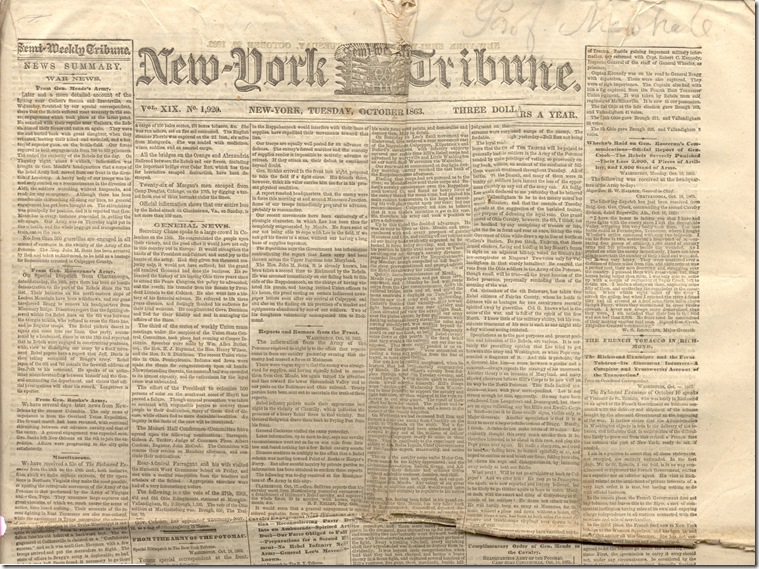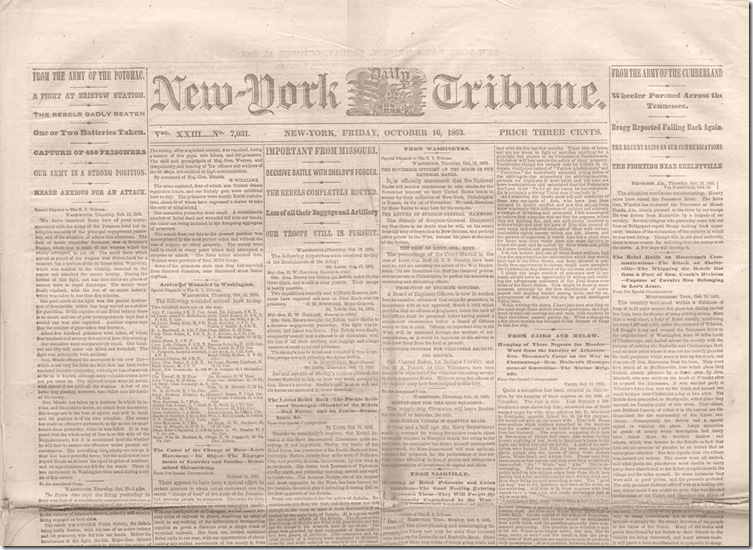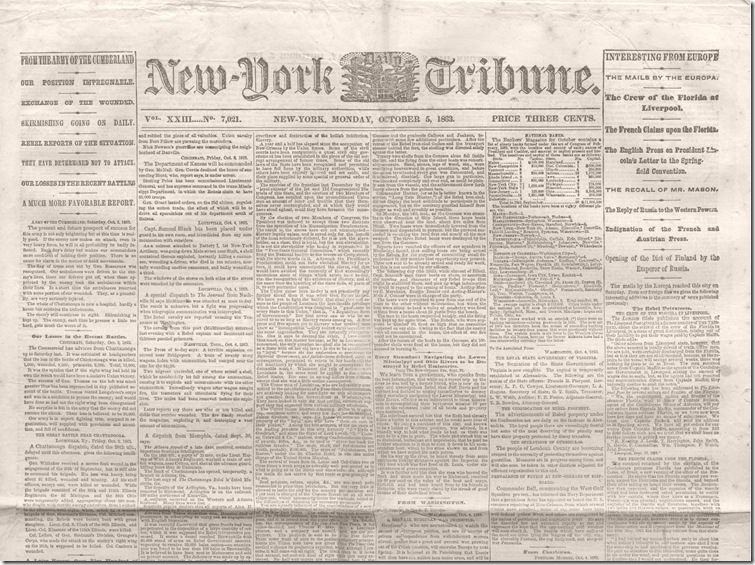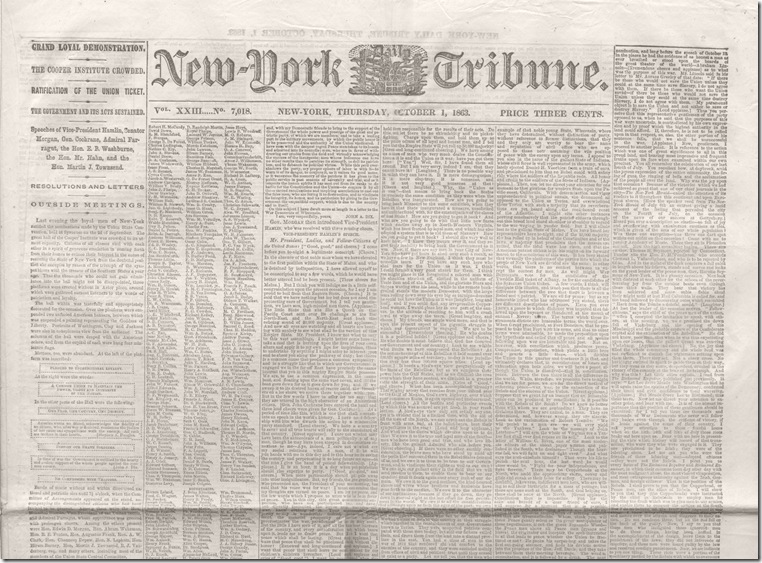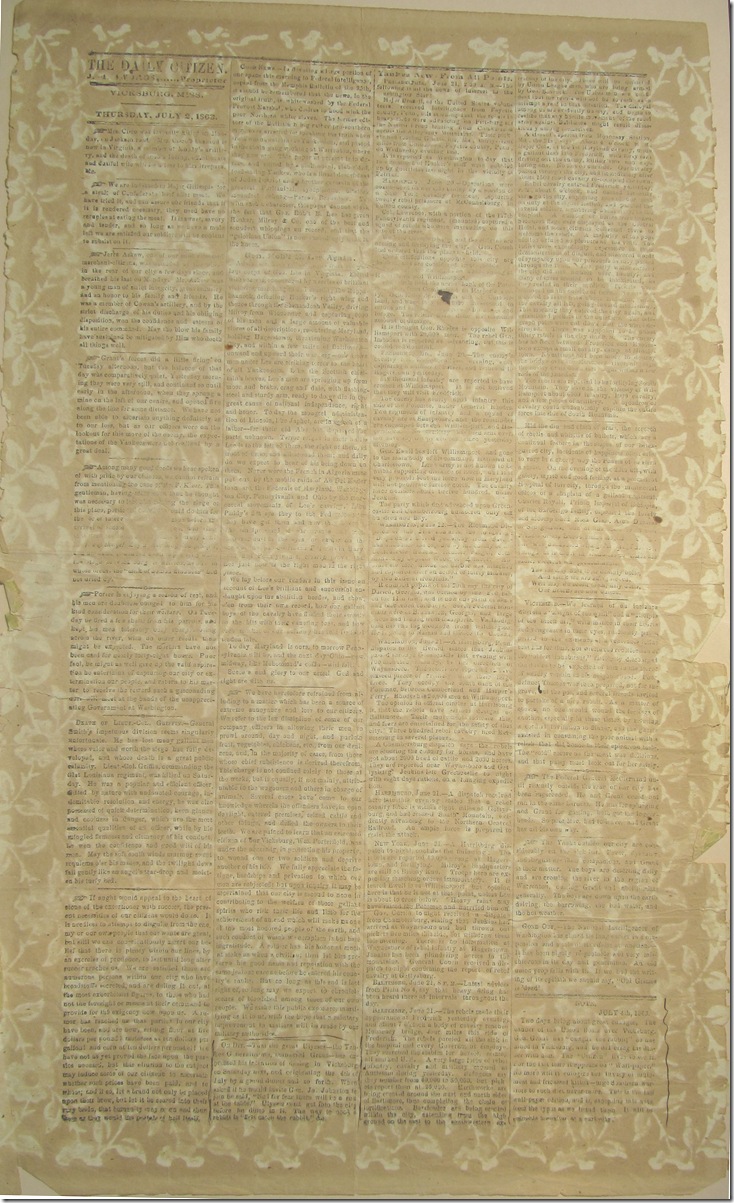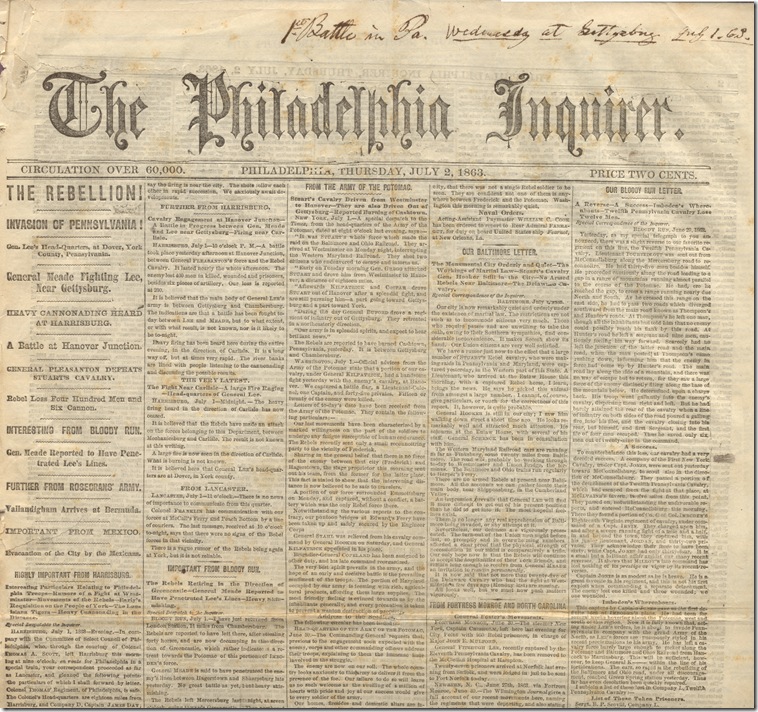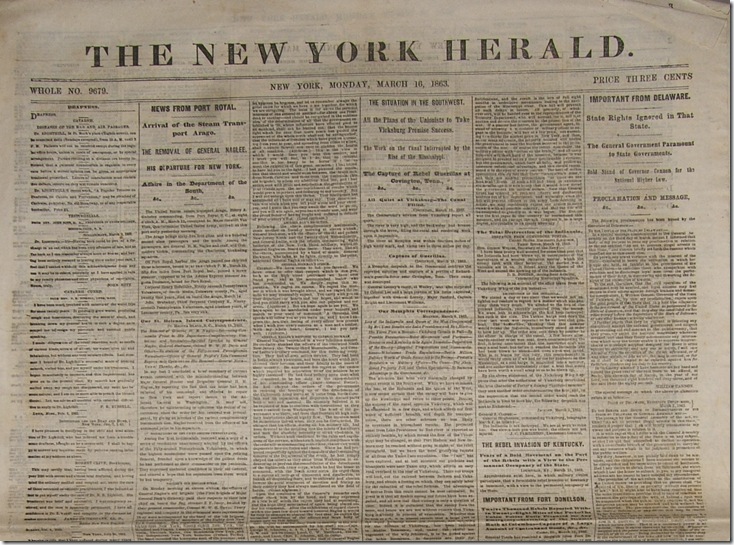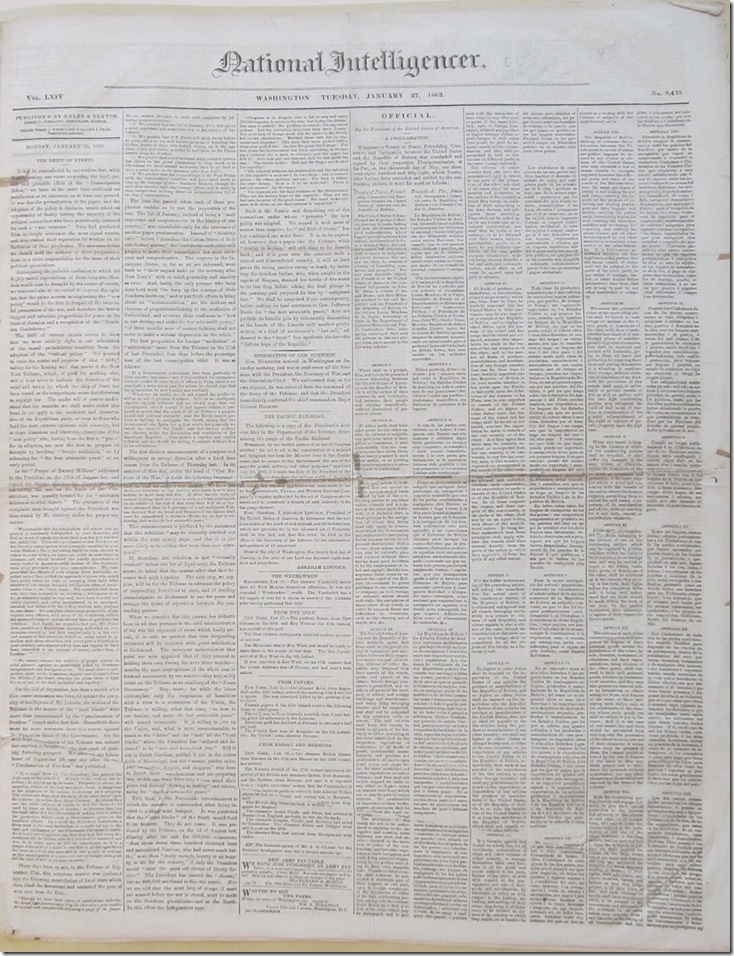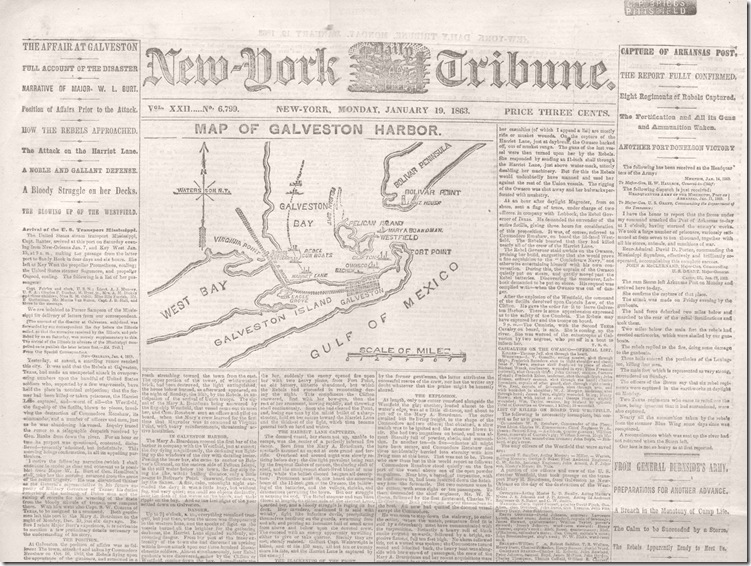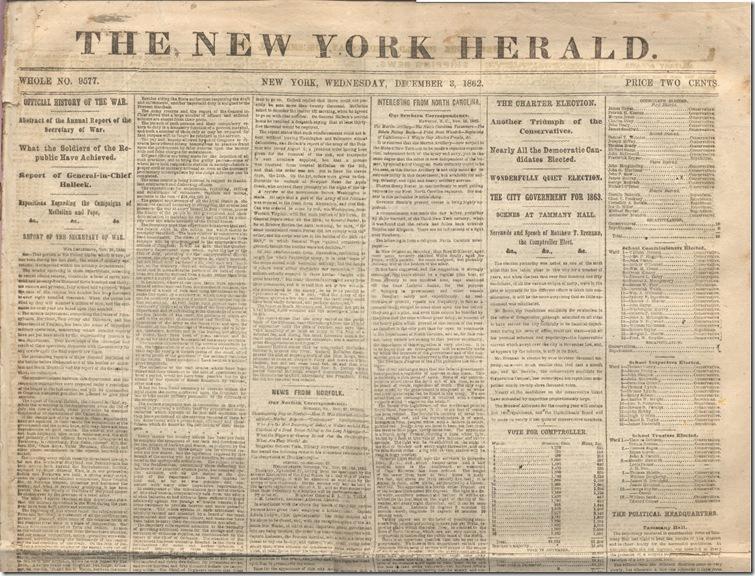Transcript (excerpt):
Page 1, Upper Half
The effort of the President to colonize 500 persons of color on the southwest coast of Hayti has proved a failure. Though unusual precaution was taken to contract with responsible parties to convey these people to their destination, many of them died of disease, while others fled to more desirable localities. An inquiry into the facts of the case will be instituted.
Citation:New York Tribune. 20 October 1863. Gift of Steven and Susan Raab.
